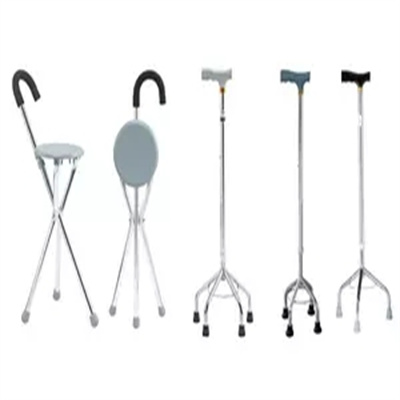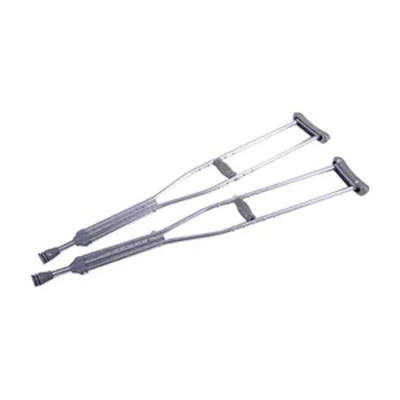Interacting with crutch users, or individuals using any mobility aids, should be done with respect and sensitivity. Here are some tips for practicing good crutch etiquette when you encounter someone using crutches:
- Ask Before Assisting: Always ask the person if they need help before offering assistance. While your intentions may be good, it’s essential to respect their autonomy and independence.
- Respect Personal Space: Give crutch users enough space to move comfortably. Avoid crowding or standing too close, as it can be challenging for them to maintain balance with limited mobility.
- Speak Directly: When conversing with someone on crutches, address them directly, maintaining eye contact and speaking clearly. Avoid speaking loudly unless they request it.
- Listen Actively: If the individual wants to discuss their situation or experiences, be a good listener. Show empathy and understanding without being overly intrusive.
- Hold Doors Open: If you notice a crutch user approaching a door, you can hold it open for them. However, make sure not to rush ahead and take control of the situation unless they ask for assistance.
- Offer Seating: If you’re in a public place, consider offering your seat to a crutch user, especially on public transportation or in waiting areas. Always ask if they’d like to sit down rather than assuming they need to.
- Be Patient: Understand that moving on crutches may take longer than walking. Be patient and give them the time they need to navigate obstacles, stairs, or ramps.
- Avoid Stairs or Steep Inclines: If possible, avoid situations where a crutch user would need to climb stairs or steep inclines. Offer alternatives or assistance if necessary.
- Watch Your Pets: If you have pets, make sure they are well-trained and do not jump on or get in the way of a crutch user. Pets can pose a tripping hazard.
- Offer to Carry Items: If you see someone on crutches struggling with carrying bags or items, ask if you can help carry something for them.
- Respect Their Time: Recognize that crutch users may need more time to complete tasks or get to places. Be understanding if they arrive a little late or need extra time to accomplish something.
- Avoid Staring or Pity: Do not stare at the person using crutches or treat them with pity. Treat them with the same respect and courtesy you would offer anyone else.
- Ask About Preferences: Some crutch users may have specific preferences or needs. Don’t hesitate to ask them how you can best assist or interact with them respectfully.
- Educate Yourself: Take the time to educate yourself about different types of mobility aids and the challenges people with mobility impairments may face. This can help you be more understanding and considerate.
Remember that crutch users, like anyone else, appreciate being treated with respect, dignity, and consideration. Your willingness to offer assistance when needed and respect their autonomy will go a long way in making their interactions with others more positive and comfortable.




















